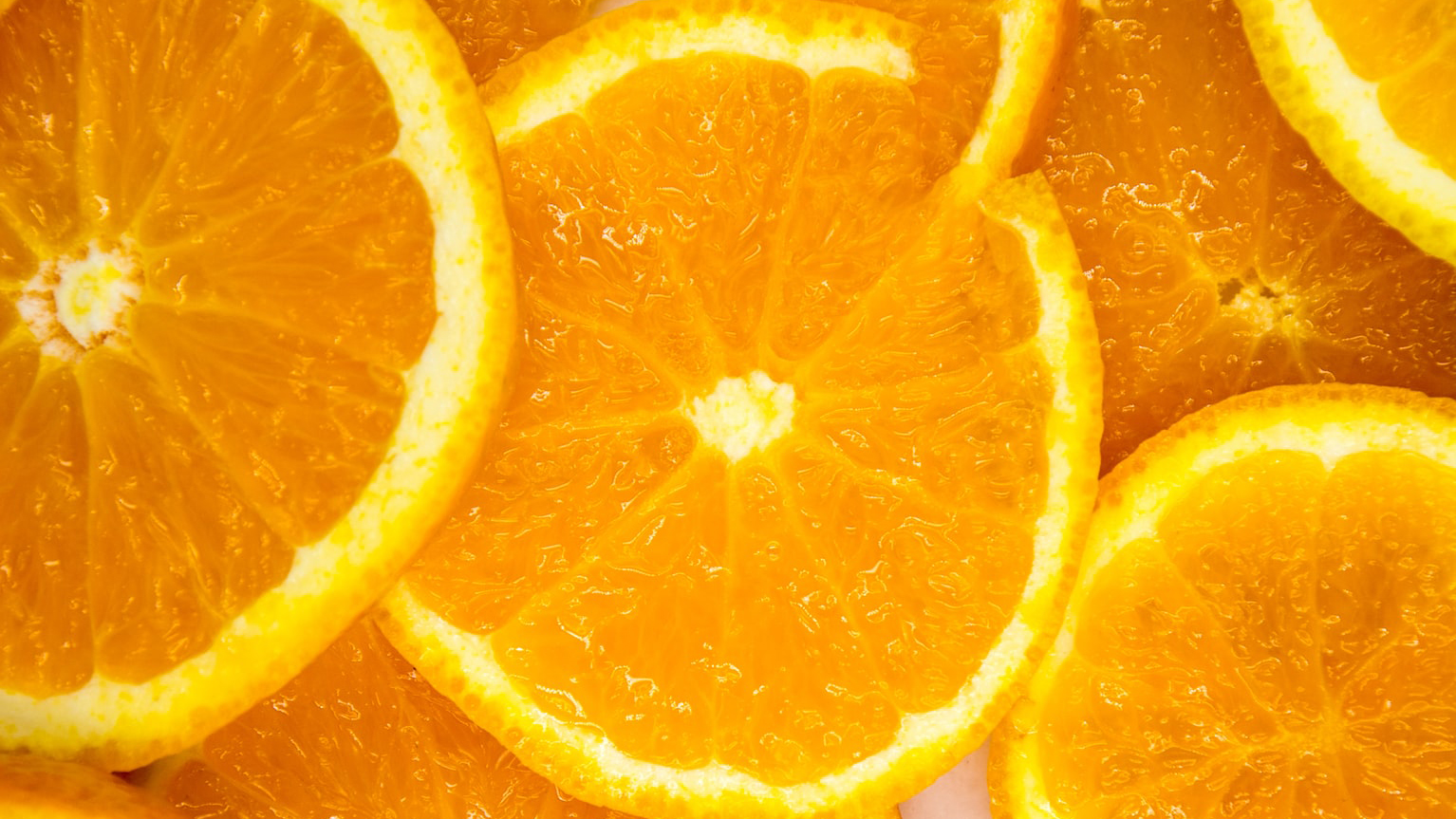How vitamin C could be used to prevent and treat Coronavirus
Miranda Levy explores how vitamin C could be the answer to preventing and treating the coronavirus

At the rate the Coronavirus seems to be spreading, it’s no wonder that people are panicking and taking desperate measures to avoid catching it. But while us Brits stockpile loo roll and hand sanitiser, several countries are researching vaccines.
And in China - where the epidemic began - researchers at Zhongnan Hospital have started to study the preventative effects of a naturally occurring substance: vitamin C, and how it could be used to prevent and help treat the virus.
Vitamin C: what the experts say
The Zhongnan researchers believe: “A few studies have shown that vitamin C deficiency is related to the increased risk and severity of influenza infections. Therefore, we hypothesise that vitamin C can improve the prognosis of patients with SARI (Severe, Acute, Respiratory Infection - a serious illness, which can be complication of Coronavirus).”
The results of their study won’t be published until September – but could the nutrients in oranges and peppers really be the answer to treating a deadly virus…?
What we know about vitamin C
Our bodies don’t manufacture vitamin C, which we need for immune function, iron absorption and healthy skin. Neither can we store it, so we need to consume it every day.
Vitamin C is mostly found in citrus fruits and brightly coloured vegetables, or you can take it in a supplement.
Vitamin C: how it can help with illness
“Vitamin C is a premier antioxidant,’ believes American cardiologist Thomas Levy, whose book Primal Panacea raves about its benefits. “It super-charges your immune system and fights viral, bacterial and chronic conditions.
Get the Fit&Well Newsletter
Start your week with achievable workout ideas, health tips and wellbeing advice in your inbox.
“When vitamin C gets inside an infected cell, it triggers the transfer of electrons that allow this cell to destroy itself.”
Dr Levy maintains that vitamin C - aka ascorbic acid - can be helpful in treating anything from Multiple Sclerosis to cancer and Ebola.
It certainly has a long history in medical science. “Vitamin C deficiency has historically been associated with treating pneumonia,” says Mike Wakeman, a clinical pharmacist and advisor to the nutritional supplement Neubria Edge.
And we’re all familiar with the idea that vitamin C can help prevent and treat the common cold. Several clinical trials in 2013 reinforced that idea after it was revealed that taking it halved the risk of colds in highly active people, including marathon runners and skiers (though not everyone else).
Another study showed that taking a 200mg capsule reduced the duration of cold symptoms by eight per cent (about a day in real time) in otherwise healthy adults.
“Tens of thousands of medical articles prove that vitamin C is one of the most studied agents on the planet,” believes Dr Levy. “If used properly, it would displace many drugs.”
Wakeman is more cautious about his faith in vitamin C, acknowledging there is a ‘lack of consistency’ in the studies. “The greatest potential for treating the common cold occurs when supplementation is initiated within 24 hours of symptoms occurring, at high doses, and is continued for at least five days,” he says.
Vitamin C: how much should I be taking?
The UK government recommends a daily intake of 40mg for adults, which you can get from a balanced diet. However, scientists in China are talking about intravenous infusions of 2400mg a day. While Dr Levy recommends up to three times this (in divided doses), to be taken orally.
There is no clearly defined upper limit. However, the NHS suggests that those who take supplements should stick to 1000mg a day (the usual strength in which they are sold).
Is it possible to overdose on vitamin C?
It’s unlikely as the kidneys excrete any excess. There haven’t been any recorded deaths by overdose, but there is evidence that people who consume more than 2000mg day can experience diarrhoea and nausea, or might be more likely to develop kidney stones (a claim that Dr Levy denies).
The conclusion seems to be that sensibly supplementing your diet with vitamin C is worth a shot. “Given its low cost and relative safety, each person should find out for themselves how beneficial they find it,” says Wakeman.
“In the meantime - especially in the current medical situation - live a healthy lifestyle, and take precautionary measures such as good hand hygiene. Any viruses or common colds potentially weaken your resilience in fighting off new infections - and this can include SARS-CoV2.”
Vitamin C: Q&A
What should I be eating?
Best foods include:
* Orange juice and oranges - 124 mg and 98 mg per serving, respectively (equivalent to a small glass and a small orange)
* Sweet red peppers, preferably raw - 190 mg per serving (roughly one pepper)
* Sweet green peppers - 129 mg per serving (one pepper)
* Strawberries - 98 mg per serving (around eight large strawberries)
* Papaya - 96 mg per serving (half a fruit)
* Broccoli - 81 mg per serving (just one small head)
* Potatoes - 70 mg per large vegetable (one small roast potato)
* Kiwi fruits - 64mg per serving (one kiwi)
* Mangos - 60 mg per serving (approx. a third of an average-sized mango)
How should I cook my fruit and veg?
The cooking process may reduce the amount of vitamin C in fruits and veg. Experts recommend steaming and microwaving instead.
If I take supplement, what form should it take?
Vitamin C traditionally comes in a water-soluble effervescent tablet, but newer forms come as ‘liposomal’ gels. Some experts think this is a more effective form of delivery, in that the fatty structures are likely to degrade in the gastrointestinal tract.
“It’s like comparing a squirt gun to a fire hose,” says Dr Thomas Levy, talking specifically about a new liquid food supplement called Altrient. Liposomal gels may also lessen the possibilities of side effects such as diarrhoea, which can occur with high-dose Vitamin C use.
Should I be taking any other virus-beating supplements?
“Among the essential micronutrients required to support a normal immune function, vitamin D and the mineral zinc also play a central role,” says Wakeman.
“Vitamins C, D and zinc help the immune system fight upper respiratory tract infections.”
a) Zinc
When taken in lozenge form within 24 hours of first symptoms, Zinc has been shown to reduce the duration and severity of common cold symptoms in children and adults.
“A combination of 1000 mg vitamin C plus 10 mg zinc given as an effervescent tablet in subjects was found to relieve some cold symptoms during the first five days of treatment,” says Wakeman.
b) Vitamin D
The ‘sunshine vitamin’ supports of potent antimicrobial chemicals, which play a major role in protecting the lung from infection. Mr Wakeman says: “A recent study showed a 12 per cent decrease in the risk of acute respiratory tract infections following vitamin D supplementation.
Should I ever take extra supplements?
“Ensuring adequate levels of vitamin C, D and zinc may be particularly important in situations where you are putting an extra challenge on the immune system,” says Wakeman. These include sudden temperature changes or when spending time in confined spaces such as airplanes, trains or open-plan offices).
“Overall, pollution (including exposure to cigarette smoke) decreases the levels of vitamin C and zinc; living in polluted areas can lead to vitamin D deficiency.”
Vitamin C rich products
1. Altrient Liposomal Vitamin C, £39.99 for 30 sachets (1000mg)
2. Holland & Barrett Timed Release Vitamin C with Rose Hips, £16.99 for 120 capsules (1000mg)
3. Pukka Elderberry Syrup, £12.45 for 100ml
4. Neubria Edge, £24.99 for 60 capsules
Launched in 2020, Fit&Well.com is all about helping you meet your health and fitness goals in ways that are fun and achievable. With news and features on fitness, weight loss, running, nutrition, yoga, wellness and more, we're committed to helping you wherever you are on your fitness journey. We break down the best fitness tech, with reviews, buying guides and the latest deals on fitness and wellness kit, from dumbbells to diffusers.
We cater for all difficulty levels here. It doesn't matter if you're a beginner in the world of fitness or you're gearing up for your tenth marathon: we're all moving towards the same goal – creating a healthier, happier you. From guides on getting started doing walks around the block, to creating the perfect work-from-home space, to eating to fuel your first triathlon. It's all here.
-
 I do these two things every day to stay fit and healthy, says the newest star trainer on Chris Hemsworth's fitness app
I do these two things every day to stay fit and healthy, says the newest star trainer on Chris Hemsworth's fitness appHere's how Centr's Korey Rowe trains for longevity
By Sam Rider Published
-
 I thought sports weren't for me, until I realised they're a game-changer for ticking off cardio
I thought sports weren't for me, until I realised they're a game-changer for ticking off cardioI swapped HIIT and running for tennis—and I've never felt better
By Alice Porter Published
